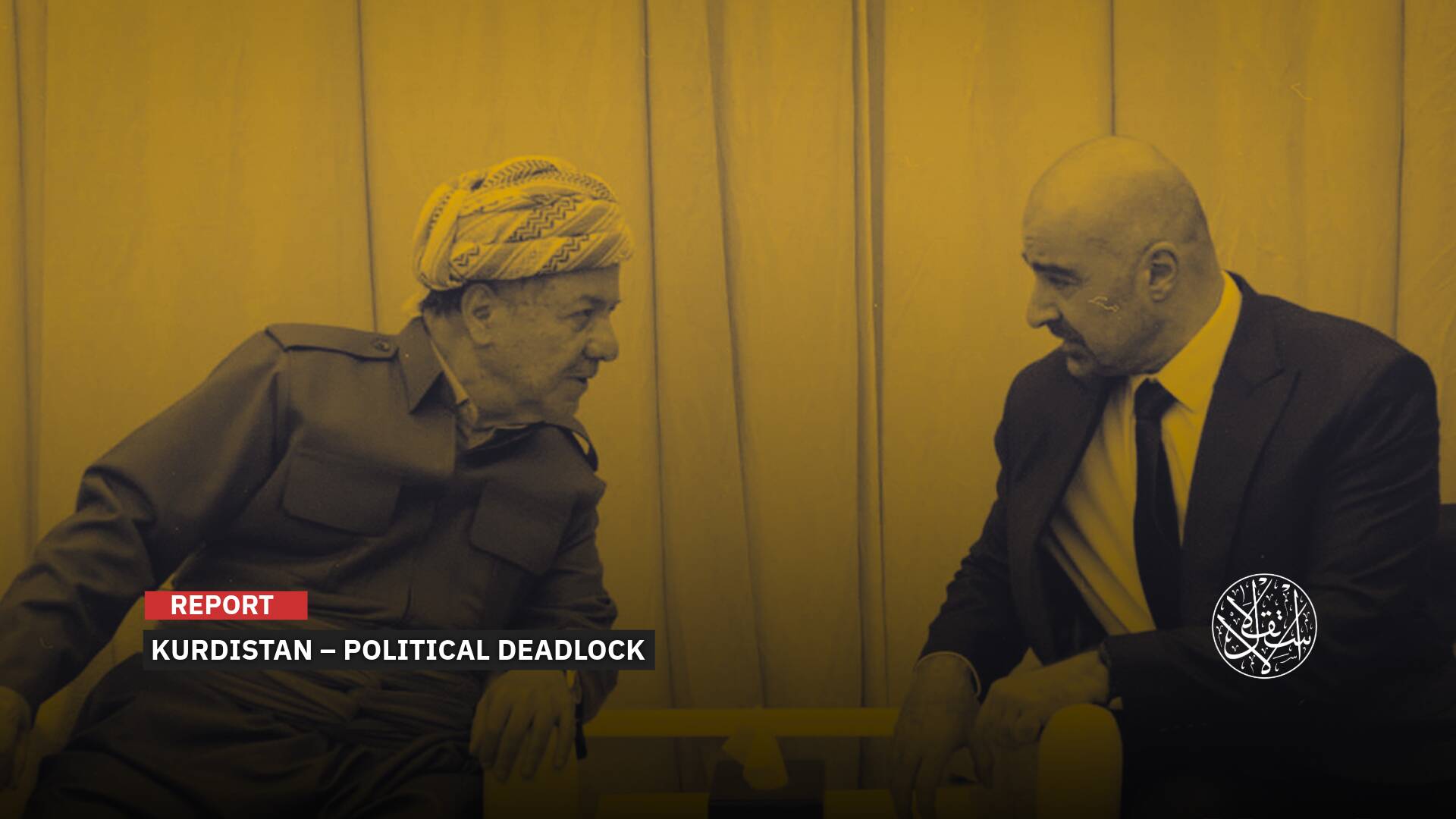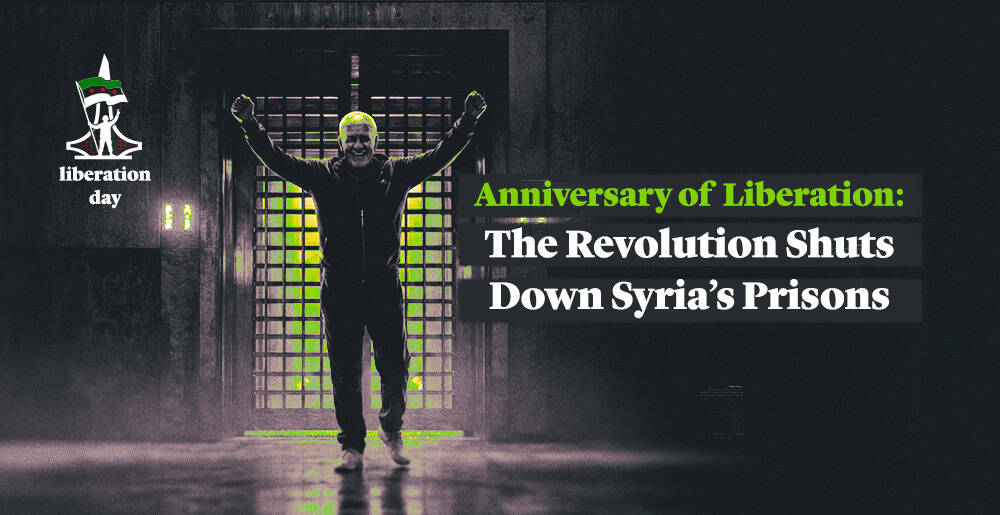Hariri’s Return to Politics Marks the Resurgence of the 'Future Movement' in Lebanon

“Future Movement” is on high alert, mobilizing its base in preparation for the upcoming elections.
Amid shifting political landscapes in both Lebanon and Syria, former Lebanese Prime Minister Saad Hariri has decided to revive the Future Movement, which he leads, after three years of suspended activity.
Hariri returned to Lebanon to mark the anniversary of his father Rafik's assassination on 14 February 2005 in Beirut, where, addressing thousands of his supporters in the heart of the capital, he declared that the Future Movement would be their voice in the upcoming political challenges.

Hariri's Return
On the 20th anniversary of his father Rafic Hariri’s assassination, Saad Hariri vowed that the Future Movement would remain a force in Lebanon's political future, declaring, "This movement, the Future Movement, will stay here with you."
Addressing a crowd in Beirut on February 14th, 2025, Hariri outlined his vision for Lebanon, calling for a "normal state" with a national army, legitimate security forces, and a free, productive economy that guarantees jobs and a dignified life for all Lebanese.
Turning to Syria, Hariri reflected on the struggle for justice, stating, “Twenty years ago, you demanded justice and, with your will, you expelled the criminal Bashar al-Assad from Lebanon.”
"After 20 years, and 30 more of sectarian rule, suffering, injustice, murder, imprisonment, torture, and brutality, the brave Syrian people expelled the criminal from Syria. Perhaps this is the beginning of justice," he added.
Hariri’s return to Lebanese politics marks a significant shift after he suspended his political activities in January 2022, urging the Future Movement to refrain from participating in parliamentary elections.
Since then, Hariri, who has lived in voluntary exile in the UAE, had remained largely out of the public eye.
However, with shifting internal and regional dynamics weakening Hezbollah and its allies, Hariri sees an opportunity to reactivate his political base.
The resurgence of Hariri’s movement coincided with a decline in Hezbollah's influence following the Israeli-Lebanese conflict of October 2023, which culminated in the assassination of Hezbollah leader Hassan Nasrallah in September 2024.
Tensions between Hariri and Hezbollah have long been fraught, dating back to the assassination of his father, and were further exacerbated by the 2020 conviction of Hezbollah member Salim Ayyash for the killing.
Hariri’s political return is also buoyed by the fall of Bashar al-Assad’s regime in Syria in December 2024, which further weakened Hezbollah’s position in Lebanon.
Despite the shifting political landscape, Hariri remains a powerful Sunni figure in Lebanon, still seen by many as his father’s heir.
However, the Future Movement is no longer the formidable force it once was, having lost many of its core members.
Observers suggest Hariri will seek to rebuild his political base with a mix of old allies, rising figures, and new partners in the wake of the political upheavals that have shaken Hezbollah and its allies.

Hariri's Political Resurgence
In a recent conversation with journalists, according to Al-Estiklal, Saad Hariri emphasized that Lebanon's current priority is not political infighting but reforms, expressing confidence in the presidency of Joseph Aoun and the government of Nawaf Salam.
"Today presents a golden opportunity for Lebanon to rise again and implement the necessary reforms," Hariri said.
With the first major test for his movement coming in the form of the municipal and electoral elections in May 2025, Hariri has ample time to chart the course for the Future Movement's resurgence.
The parliamentary elections in 2026 will be the true measure of his return to politics after an extended hiatus.
Ghattas Khoury, former advisor to Hariri and a former MP, noted that Hariri’s recent remarks signaled a new political roadmap for the Future Movement, in light of shifting regional and international dynamics, and the changing political scene in Lebanon, where Syrian and Iranian influence is no longer dominant.
"Lebanon has entered a new phase, one that will see the rebuilding of a free authority capable of addressing the country’s crises," Khoury said, emphasizing the alignment of the new government with the election of a new president and the onset of a new political process.
Khoury further pointed out that Hariri's return marked the repositioning of the Future Movement after a three-year hiatus, during which political influence in Lebanon seemed out of reach.
"The movement is now on high alert, ready to regain its support in key electoral areas, whether in municipal or parliamentary elections," he added.
He also hinted at potential new alliances, which Hariri is expected to reveal during each electoral cycle.
Khoury concluded that the revival of the Future Movement is aimed at restoring the political balance in Lebanon, which had been missing over the past three years.
Ghattas Khoury highlighted that the Future Movement is currently on high alert, preparing to mobilize its base and regain its popularity in key electoral regions for both municipal and parliamentary elections.
He also hinted at new alliances that the movement is expected to unveil at each electoral juncture.
Khoury argued that the return of the Future Movement is crucial for restoring Lebanon's political balance, which has been absent for the past three years, asserting that the movement is not sectarian but national, having previously contributed to Lebanon's recovery and worked with other political forces to generate solutions.
The formation of the new government, led by Nawaf Salam, came under significant international pressure, particularly from the United States and Saudi Arabia, in response to shifting internal dynamics.
These changes followed Hezbollah's setbacks in its recent confrontation with “Israel” and the downfall of its ally, Bashar al-Assad, in neighboring Syria.
This marked the first time since the end of the Lebanese Civil War in 1990 that a Lebanese president, Joseph Aoun, was elected without Hezbollah's influence in the selection process.

Reorganizing His Alliances
As Saad Hariri begins to reorganize the ranks of his Future Movement in Lebanon, it is clear that re-establishing his relationship with Saudi Arabia will be crucial, given that the kingdom’s withdrawal of political support has been a key factor in weakening his presence.
Imad Salamey, a professor of political science, suggested that Saudi Arabia seeks a strong and organized Sunni leadership.
“If Hariri can present himself as that figure, his return would serve both his interests and those of the kingdom,” Salamey noted.
Salamey further emphasized that, due to Hariri's unparalleled ability to unite Sunni voters, he remains the only leader capable of securing a strong parliamentary bloc in the upcoming 2026 elections.
Hariri’s absence from the 2022 parliamentary elections created a significant void, as no substantial Sunni bloc emerged to play a decisive role in Lebanon's political landscape, unlike in previous electoral cycles when the Future Movement was active.
The deterioration of Hariri's relationship with Saudi Arabia, his primary backer, marked a pivotal moment in his political trajectory.
In November 2017, Hariri announced his resignation as prime minister from Riyadh, a move that his opponents characterized as “Saudi-driven.”
However, after returning to Lebanon a few days later, following intervention by French President Emmanuel Macron, Hariri reversed his decision.
In October 2019, Hariri resigned again in the wake of mass protests calling for the removal of a corrupt political elite.
While some attributed his declining popularity to political concessions made to Hezbollah, Hariri later insisted that his aim was to maintain civil peace.
Hariri's retreat from politics followed a series of political and financial setbacks.
Yet, with shifting regional dynamics, Saudi Arabia has recently returned to Lebanon's political scene after a prolonged absence, primarily due to its opposition to Hezbollah's dominance over the country's decision-making.










